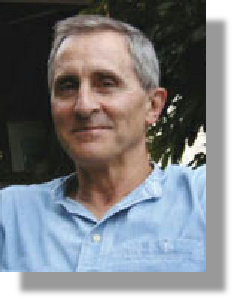


Apt comments in First time feature for ENVOI magazine (Written 1995, published 1996 with five poems.)
At 52 and feeling worn out and jaded after just taking redundancy from a career of
teaching at secondary level, I sometimes feel, wrongly I know, too 'past it' to
start in on the contemporary verse-
So if I feel such questionable reservations why not set up as a hermit on my own
equivalent of R.S.Thomas's Lleyn peninsula or get on with a useful job of work ?
Answer: whether I like it or not I am compelled to write, I need an audience, and
verse insists on being my medium, try as I may to attempt, say, prose fiction or
dramatic dialogue. And I admire and read avidly a great deal of contemporary literature.
I have also encouraged and (in so far as one can) taught creative writing for many
years in a deliberately unprescriptive and open-
Unfortunately, I have found it a hard lesson over the years to be as easygoing and
broadminded with myself as I was with the young; and I learnt too little from them.
My verse suffered from being overworked, stilted, stickling for formalities, 'clogged'
as one editor put it so well, until, in the light of generous help and tough advice
from other writers I respect, I have discovered how to 'ease up' and have the confidence
to say what I mean without excess gloss, verbal display or over-
'... the best I have done
Was done to make it plain ...'
I have also begun to realise that everything encountered is potential material: there are no subjects as such; specifics, too, are more capable of powerful suggestion than generalities, however elegant these may sound to the conceited me in my locked garret. All part of the problem and adventure of finding a genuine voice, a self that one is at ease with, or the ability to be many selves freely without loss of integrity. A lifetime's endeavour which may only be showing a few unripe fruits at 50+.
I write to be understood and responded to by as diverse a number of readers as possible, to feel I am sharing a common experience under the guise of personal particularities. But listening to a recent disturbing radio documentary on the life and work of the American writer, Carson McCullers (famous for The Heart is a Lonely Hunter), shocked me into realising that a central feature of my writing is, indirectly, loneliness and an awareness, painful or sometimes stimulating, that in the end, however successfully you kid yourself to the contrary, you stand alone and are answerable only for yourself. This may or may not be apparent in this selection, which I'd rather not introduce: not to be awkward, but because if the poems don't speak for themselves they probably have nothing to say that notes about occasions or motives will add to.
(The poems accompanying this article, published in Envoi 114, subsequently appeared [revised] in the booklet 'Learning Not to Touch' (1998))
